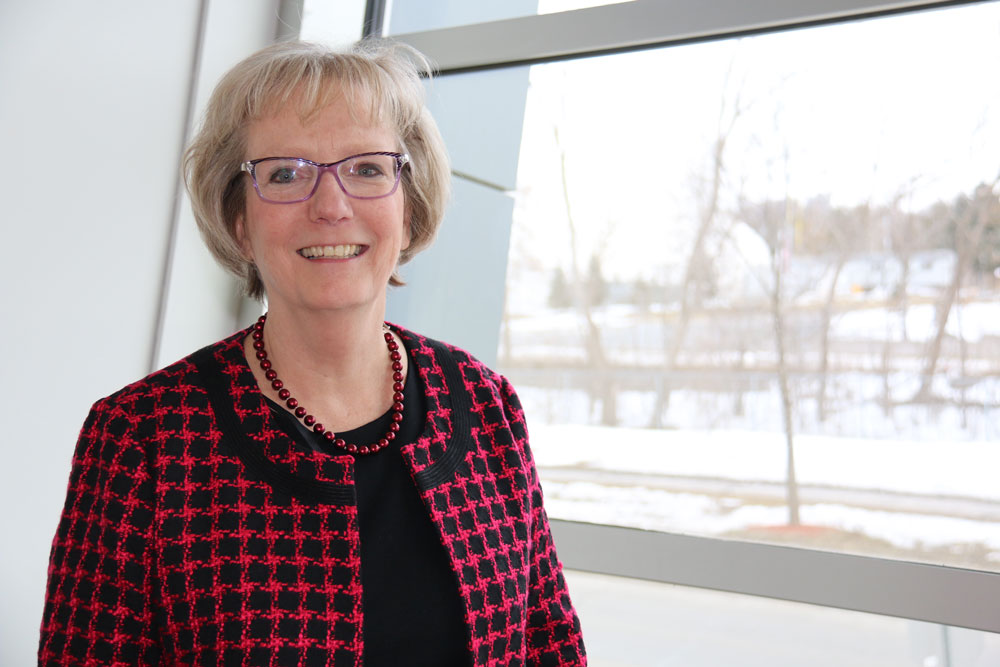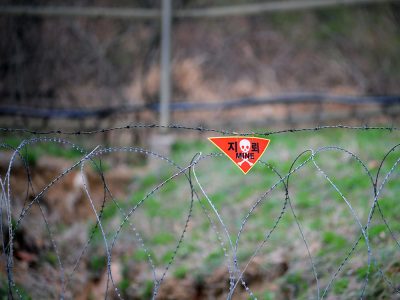This profile was part of the Faculty of Public Affairs’ 75 for the 75th series, which highlighted 75 notable alumni in FPA in honour of Carleton University’s 75th anniversary. These stories were published in 2016 and 2017.
Assistant Deputy Minister for Europe, the Middle East and the Maghreb, Global Affairs Canada
Bachelor of Arts, Political Science (’79)
Master of Arts, International Affairs (’92)

In 1982, NPSIA student Alexandra Bugailiskis joined the then-Department of External Affairs. She had finished her coursework—but not her Master’s thesis—when in 1984 she was off to her first posting in Ghana. She remembers seeing empty store shelves as Ghana struggled economically.
“When word came that there was sugar, you would drop what you were doing and find a way to get to the head of the line,” she recalls.
Following her experience in Ghana, Ms. Bugailiskis worked on the successful campaign for Canada’s election to the UN Security Council, which led to a project that changed the course of her career—assisting Namibia with its transition to independence.
“Working in the UN division was one of the high points of my career. I traveled to Namibia for six weeks to assist our mission in preparing for and observing the UN-sponsored elections,” says Ms. Bugailiskis, who received the first Professional Association of Foreign Service Officers (PAFSO) Award for her work on Namibia. It was presented to her by Joe Clark, then Foreign Minister.
During her time there, she says she witnessed the changing face of peacekeeping.
“It was less about the military and much more about preparing for peace through policing, community engagement and awareness,” she says.
The Namibian experience inspired her to return to NPSIA, write her thesis on the operation, and finally graduate.
“It was a fabulous opportunity to refresh those policy and theoretical underpinnings,” says Ms. Bugailiskis, who worked closely with Professor Fen Hampson. “I was also able to offer a reality check to many of the bright but less experienced students in the program.”
It also convinced her of the need for a larger game plan for governance in countries that were transitioning to democracy.
“If you can’t reconcile the warring factions, you are only delaying the inevitable,” she explains. “We’re seeing this now in Iraq and Syria. We need to defeat ISIS, but we need to address the underlying sources of conflict, as well.”
Ms. Bugailiskis has first-hand knowledge of the situation in Syria: she was Canada’s Ambassador to Syria from 1997 to 2000.
“At the time, Syria was like the eye in the storm: there was conflict all around, but not in Syria,” she says. “The people were incredibly hospitable, generous and open to the world. I learned the definition of generosity from them.”
Ten years later, everything had changed.
“It’s been devastating to see the Syrian people treated as a source of terror,” says Ms. Bugailiskis.
That is why, after being the recipient of Syrian generosity as ambassador, Ms. Bugailiskis was so delighted to support the government’s program to bring more than 40,000 Syrian refugees to Canada.
“I’m very proud to see the incredible generosity of Canadians who have opened their doors when so many others are expressing fear,” says Ms. Bugailiskis, who also served as Canada’s Ambassador to Cuba and Poland.
She credits her colleagues at Global Affairs Canada—many of whom are NPSIA alumni—for their dedication to this work. She says working abroad has provided them with a greater appreciation for their country.
“It’s really humbling when you see Canada through other people’s eyes because you realize how highly regarded we are,” she says. “You also realize how fortunate we are. That’s why we need to give back.”
Wednesday, March 15, 2017 in #FPA75, Career Paths, Department of Political Science, International Affairs
Share: Twitter, Facebook



